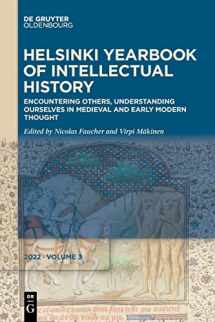
Encountering Others, Understanding Ourselves in Medieval and Early Modern Thought (Helsinki Yearbook of Intellectual History, 3)
Book details
Summary
Description
Recent research has challenged our view of the Abrahamic religious traditions as unilaterally intolerant and incapable of recognizing otherness in all its diversity and richness; but a diachronic and comparative study of how these traditions deal with otherness is yet to appear.
This volume aims to contribute to such a study by presenting different treatments of otherness in medieval and early modern thought. Part I: Altruism deals with attitudes and behaviors that benefit others, regardless of its motives. We deal with the social rights and emotions as well as the moral obligations that the very existence of other human beings, whatever their characteristics, creates for a community. Part II: Religious recognition and toleration considers identity, toleration and mutual recognition created by the existence of religious or ethnic otherness in a given social, religious or political community. Part III: Evil deals with religious otherness that is considered evil and rejected such as heretics and malevolent, demonic entities.
The volume will ultimately inform the reader on the nature of religious toleration (including beliefs and doctrines, even emotions) as well as of the self-definition of religious communities when encountering and defining otherness in different ways.


We would LOVE it if you could help us and other readers by reviewing the book
Book review



